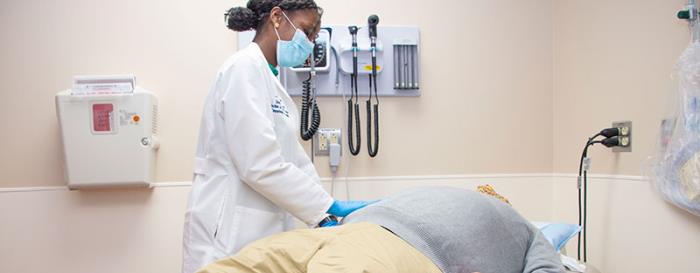Stomach cancer, medically known as gastric cancer, is a serious condition that often necessitates surgical intervention. Surgical options may include partial gastrectomy or total gastrectomy, depending on the extent of the disease. The primary goal of surgery is to remove cancerous tissues and improve the patient's quality of life. However, surgery can lead to significant changes in the digestive system, necessitating a comprehensive approach to rehabilitation and physical therapy post-operation.
Medical disclaimer: This content is for general awareness and does not replace a doctor’s consultation. For diagnosis or treatment decisions, consult a qualified specialist.
The Importance of Rehabilitation After Stomach Cancer Surgery
Rehabilitation following stomach cancer surgery is crucial for restoring the patient’s physical health and enhancing their overall well-being. Post-operative rehabilitation focuses on strengthening the body, improving mobility, and addressing any functional limitations that may arise due to surgery. A well-structured rehabilitation program can help patients regain their independence and improve their quality of life.
Physical Therapy Goals Following Stomach Cancer Surgery
The primary goals of physical therapy after stomach cancer surgery include enhancing functional mobility, reducing pain, and preventing complications such as deep vein thrombosis (DVT). Therapists work with patients to develop individualized exercise plans that focus on core stability, strengthening abdominal muscles, and improving overall endurance. Achieving these goals is essential for the patient’s recovery journey.

Initial Post-Operative Care and Physical Activity
Immediately following surgery, patients are typically encouraged to engage in light physical activity, such as walking, to promote blood circulation and prevent complications. Healthcare providers will assess the patient's condition and provide guidelines on when to gradually increase physical activity. Early mobilization is vital to enhance recovery and reduce the risk of post-operative complications.
Role of Nutrition in Rehabilitation After Surgery
Nutrition plays a pivotal role in the rehabilitation process following stomach cancer surgery. Patients often experience changes in appetite and digestive function, making it essential to focus on nutrient-dense foods that support healing. A registered dietitian can help create a tailored dietary plan that includes adequate protein, vitamins, and minerals to facilitate recovery and maintain energy levels.
Physical Therapy Techniques for Post-Surgery Recovery
Physical therapists employ various techniques to aid in recovery after stomach cancer surgery. These may include manual therapy, therapeutic exercises, and breathing exercises. Each technique aims to alleviate pain, improve mobility, and enhance the patient’s overall functional capacity. Therapists also educate patients on safe movement patterns to prevent injury during daily activities.
Managing Pain During Rehabilitation After Surgery
Effective pain management is a critical component of rehabilitation following stomach cancer surgery. Patients may experience pain due to surgical intervention, which can hinder their ability to engage in physical therapy. A multidisciplinary approach, including medication, physical therapy, and psychological support, can be beneficial in managing pain and facilitating recovery.
Importance of Psychological Support in Recovery
Psychological support is vital for patients recovering from stomach cancer surgery. The emotional toll of cancer and its treatment can lead to anxiety and depression, affecting rehabilitation. Mental health professionals can provide counseling and coping strategies to help patients navigate the emotional challenges of recovery, ultimately improving their adherence to rehabilitation programs.
Gradual Resumption of Daily Activities After Surgery
Resuming daily activities is an important aspect of rehabilitation after stomach cancer surgery. Patients are advised to gradually return to their normal routines, including work and social interactions, as their strength and endurance improve. This gradual approach helps build confidence and encourages a sense of normalcy in the patient’s life.

Long-Term Physical Therapy Considerations After Stomach Cancer Surgery
Long-term physical therapy may be necessary for some patients after stomach cancer surgery. Ongoing therapy can help address any lingering issues related to mobility, strength, and overall fitness. Continuous assessment and adjustment of the rehabilitation program ensure that patients receive the appropriate level of support throughout their recovery journey.
Monitoring for Complications During Rehabilitation
During the rehabilitation process, it is essential to monitor for potential complications that may arise post-surgery. Patients should be educated about signs of complications, such as increased pain, swelling, or changes in bowel habits. Early detection and intervention can significantly improve outcomes and prevent further health issues.
Benefits of Group Therapy and Support Groups
Participating in group therapy or support groups can provide valuable emotional and social support for patients recovering from stomach cancer surgery. Sharing experiences with others facing similar challenges can foster a sense of community and belonging, which is essential for emotional healing and resilience during the recovery process.
Role of Family Support in Rehabilitation After Surgery
Family support is crucial in the rehabilitation process following stomach cancer surgery. Family members can assist with daily activities, provide emotional support, and encourage adherence to rehabilitation programs. Involving family in the rehabilitation process can enhance the patient’s motivation and overall recovery experience.
Setting Realistic Goals for Rehabilitation After Surgery
Setting realistic and achievable goals is vital for successful rehabilitation after stomach cancer surgery. Patients, along with their healthcare team, should establish specific, measurable, attainable, relevant, and time-bound (SMART) goals. This structured approach helps patients stay focused and motivated throughout their recovery journey.
Adapting Exercise Regimens to Individual Needs
Every patient’s recovery journey is unique, necessitating the adaptation of exercise regimens to individual needs and capabilities. Physical therapists will assess each patient’s condition and customize exercise plans that align with their recovery goals. This personalized approach maximizes the effectiveness of rehabilitation and fosters patient engagement in their recovery process.
Importance of Follow-Up Appointments in Recovery
Regular follow-up appointments are essential for monitoring progress and addressing any concerns during the rehabilitation process. These appointments allow healthcare providers to assess the patient's recovery, adjust rehabilitation plans as necessary, and ensure that patients are on track to meet their recovery goals.
Integrating Alternative Therapies in Rehabilitation
Some patients may benefit from integrating alternative therapies into their rehabilitation programs. Modalities such as acupuncture, yoga, and mindfulness meditation can complement traditional rehabilitation methods. These therapies may help alleviate stress, improve mental well-being, and enhance overall recovery outcomes.
Best Stomach Cancer Treatment in India
The Best Stomach Cancer Treatment in India combines advanced therapies like surgery, chemotherapy, and targeted treatments to ensure optimal outcomes for patients battling stomach cancer.
Stomach Cancer Treatment Cost in India
The stomach cancer treatment cost in india is affordable and transparent, making world-class cancer care accessible to both domestic and international patients.
Best Stomach Cancer Specialists in India
The Best Stomach Cancer Specialists in India bring extensive expertise in oncology, providing tailored treatment plans and compassionate support throughout the patient’s journey.
Exploring Targeted Therapies for Stomach Cancer Patients
The targeted therapies for stomach cancer focus on attacking cancer cells with precision, reducing side effects and improving survival rates for patients undergoing treatment.
Innovations in Robotic Surgery for Stomach Cancer in India
The robotic surgery innovations offer minimally invasive options for stomach cancer treatment, ensuring faster recovery and greater accuracy during complex procedures.
FAQs on Rehabilitation and Physical Therapy After Stomach Cancer Surgery
What is the typical timeline for rehabilitation after stomach cancer surgery?
The timeline for rehabilitation can vary based on individual recovery, but patients generally begin light activities within a few days post-surgery. A structured rehabilitation program may last several weeks to months, depending on the patient’s progress and specific needs.
How can I manage pain during my recovery?
Pain management strategies may include medication, physical therapy, and relaxation techniques. It is essential to communicate openly with your healthcare team about any pain you experience to adjust your pain management plan accordingly.
Are there specific exercises I should avoid after stomach cancer surgery?
Yes, patients should avoid high-impact activities and heavy lifting during the initial recovery phase. A physical therapist can provide guidelines on safe exercises tailored to individual recovery stages.
How can I ensure I am getting adequate nutrition during recovery?
Consulting with a registered dietitian can help you create a meal plan that meets your nutritional needs while considering any dietary restrictions post-surgery. Focus on consuming high-protein and nutrient-rich foods to support healing.
Is psychological support necessary during rehabilitation?
Yes, psychological support can significantly enhance recovery. Emotional challenges are common after cancer treatment, and counseling or support groups can provide the necessary coping strategies to navigate these challenges effectively.
Discover the Best Oncologists and Cancer Hospitals in India
When it comes to cancer treatment, finding the right specialist and hospital can make a significant difference in the outcome. In this blog, we have compiled a list of the top oncologists and cancer hospitals across major cities in India, ensuring that you have access to the best care available.
Top Oncologists in Major Cities
For those seeking expert oncologists, we have identified the best specialists in key cities:
Leading Cancer Hospitals
In addition to finding the right specialist, choosing the right hospital is crucial for comprehensive cancer care. Here are the top hospitals in major cities:
Get more indepth information on Cancer treatments and their costs
Conclusion
Finding the right oncologist and hospital is the first step in your cancer treatment journey. Explore the links above to learn more about the top specialists and hospitals in your area.